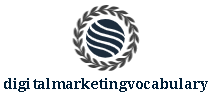What is Link Buying: Understanding the Risks and Realities
Link buying is the practice of purchasing backlinks with the goal of enhancing a website's search engine rankings. Backlinks are incoming hyperlinks from one website to another, and they play a significant role in determining a site's position in search engine results pages. Historically, the quantity of backlinks was a major factor in a site’s search engine performance, which led some website owners to buy links as a shortcut to increase their site’s visibility and credibility.
However, search engines like Google have evolved their algorithms to favor the quality of links over mere quantity. As such, the practice of link buying has become controversial. Search engines now penalize websites that participate in link schemes or non-organic link building practices. They advocate for the creation of high-quality content that earns backlinks naturally based on merit and relevance rather than through financial transactions.
The strategy of link buying can carry risks, including potential penalties from search engines that may result in lower rankings or even removal from search index listings. As website owners, we must be aware of these risks and consider them when devising our search engine optimization (SEO) strategies. Ensuring that our efforts adhere to best practices can help maintain the integrity of our sites and foster a positive reputation with both search engines and users.
Key Takeaways
- We purchase links to improve our website's search engine rankings.
- High-quality content that naturally earns backlinks is preferred by search engines.
- Link buying carries the risk of penalties from search engines.
Understanding Link Buying
Link buying is a strategy in digital marketing where one purchases backlinks from other websites to enhance their own site's search engine rankings.
Definition of Link Buying
Link buying refers to the practice of acquiring hyperlinks from other websites to your own. A hyperlink (often just called a link) is a way for users to navigate between pages on the internet. Search engines use these links to crawl the web; they will crawl the links between the individual pages on your website, and they will crawl the links between entire websites. By purchasing links, we aim to influence search engine algorithms and improve the visibility and ranking of our website on search engine results pages (SERPs).
Different Types of Link Buying
We recognize various forms of link buying based on the nature of the transaction and the intent behind the acquisition:
- Direct Payments for Links: The most straightforward form of link buying, where we pay a website owner directly for placing our link on their site.
- Link Exchanges: This involves an agreement to place a link in exchange for a link back, rather than money changing hands. Although not a direct purchase, it is considered as a form of link buying due to the mutual benefit derived.
- Paid Posts or Sponsored Content: We may finance the creation and publication of content on another site that includes a link back to our site.
The Purpose of Link Buying
Our primary purpose for link buying is to enhance the number and quality of inbound links to our website, which can lead to:
- Improved Search Engine Rankings: Search engines may view links as endorsements of content quality, potentially leading to higher rankings in SERPs.
- Increased Traffic: More links to our site can result in greater exposure and more visitors.
- Enhanced Domain Authority: A larger profile of backlinks may contribute to higher domain authority, which is a measure of a site's reputability and search engine performance.
Implications of Link Buying
In examining the implications of link buying, we must consider the potential fallout with search engines, the impact on a site's SEO and authority, and the critical factors to weigh before engaging in such practices.
Search Engine Guidelines and Penalties
Search engines like Google have clear guidelines that prohibit the purchase of links for the purpose of manipulating PageRank. Violation of these guidelines can result in severe penalties, such as:
- Downranking: A significant drop in search result rankings.
- Deindexing: Removal of the affected pages or the entire site from the search engine index.
These actions by search engines aim to maintain a fair and valuable search experience, ensuring that the best and most relevant content is easily accessible to users.
Impact on SEO and Website Authority
The allure of link buying largely stems from its potential quick boost in search rankings. However, the quality of purchased links often does not measure up to that of organically acquired links, leading to issues such as:
- Diminished Trust: Search engines may see the site as less trustworthy.
- Short-term Gains: Any ranking improvements are often temporary and can be reversed, especially after algorithm updates focused on link quality.
Solid SEO practices and website authority are built over time through the creation of quality content and natural link acquisition, which are key for long-term success.
Considerations Before Buying Links
Before committing to buying links, it’s our responsibility to evaluate the risks and the quality of the links we intend to purchase. Important considerations include:
- Source Reputation: Assessing the credibility and relevance of the link sources.
- Detection Risk: Understanding the likelihood that the search engines will identify the purchased links.
- ROI: Considering whether the cost of buying links is justifiable by the potential, yet uncertain, increase in SEO performance.
Table 1: Key Considerations Before Buying Links
|
Consideration |
Description |
Importance |
|
Source Reputation |
The credibility of websites from which links are bought |
High |
|
Detection Risk |
Likelihood search engines will detect bought links |
High |
|
ROI |
Justification of costs versus potential SEO benefits |
Variable |
Careful due diligence is essential to mitigate the potential negative implications of link buying on a website's search engine standing and its long-term SEO health.

 EN
EN DK
DK SR
SR DE
DE FI
FI